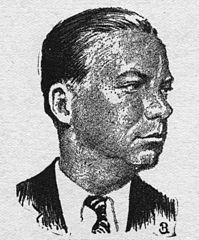Ask a dozen writers for advice on how/how often to write productively and you’ll get a dozen answers. Everyone will eagerly tell you the system that works for them, urging you to replicate it precisely on your way to success. But as we all know from a million ads for personalized products, everyone is different. Given the same topic, no two writers will produce the same story. In the same way, no two writers will find the same process.
We’ve written about this before, of course, at length. But in a month about momentum, it’s one of the most important topics to reiterate: no, you don’t need to write every day or write a certain number of words per session. As I see it, “writing regularly” as a concept boils down to two core principles:
- Wanting to write
- Making time to write
But there’s a third principle as well, one that sits outside of writing regularly but is equally, if not more, important: don’t beat yourself up if you aren’t managing the kind of regular writing you want. I’m speaking to you as someone who is suffering from a momentum problem myself, right now. An unexpected promotion earlier this year at my day job has left me with a lot less energy in the evening, and I spend half the weekend recovering mentally. There are some nights where I force myself to sit at the keyboard and pound out words, and after a bit they do come. Then there are some days where any attempt to do that just leaves me frustrated and with nothing to show for it. Believe me when I say I’ve failed to follow my own advice a fair bit this year.
But you can’t let yourself go down that rabbit hole, because unless you are one of those writers that thrives on pressure and recrimination, you’re just going to make the problem worse. A lot of people publicly call out George R.R. Martin for his writing, and whichever side of that debate fans might take, does anybody really think that the knowledge that thousands of fans are furious at him all the time is making The Winds of Winter happen any faster? Well, the same is true if your biggest critic is yourself. You have to be in a good head space to write well, and you’re never going to be in a good head space if you’re constantly battering yourself for not writing faster. If you try to force it, you’ll either end up with nothing or writing that’s so bad you’ll feel worse than when you started.
If you do find yourself in this vicious cycle, first take a breath. Cut yourself some slack. Quit comparing yourself to the fastest, most prolific writer you know. We all know that person, and it’s not healthy, because you aren’t them (unless, of course, you are the fastest writer you know, in which case you’ve earned a break). You aren’t a failure as a writer because you need a break.
Once you’ve given yourself some time to clear your head, think back to the last time you were writing at a rate that made you happy. What were the circumstances then, and how are your current circumstances different? And, crucially, was that pace sustainable? I’ve twice written drafts of 100,000+ word novels in under three months, but I was so burned out after each instance, I was unable to even look at my laptop for another three months. So that pace works when I have a deadline looming, but otherwise is no good for me, because I can’t sustain it long-term. With a full-time day job, 3k-5k words per week seems to be my sweet spot for sustainability, but even then, life can (and does) get in the way. You have to be both flexible and forgiving.
In the end, only you are responsible for your own well-being as a writer. No one is better equipped than you to know when it isn’t working, and no one is going to step in and tell you that it’s time to try something different or to step away for awhile. Only you can know that about yourself. But you have to remember to listen.
About the Author: Gregory D. Little
Rocket scientist by day, fantasy and science fiction author by night, Gregory D. Little began his writing career in high school when he and his friend wrote Star Wars fanfic before it was cool, passing a notebook around between (all right, during) classes. His novels Unwilling Souls and Ungrateful God are available now from ebook retailers and trade paperback through Amazon.com. His short fiction can be found in The Colored Lens, A Game of Horns: A Red Unicorn Anthology, Dragon Writers: An Anthology, and the upcoming Undercurrents: An Anthology of What Lies Beneath. He lives with his wife and their yellow lab.
You can reach him at his website (www.gregorydlittle.com), his Twitter handle (@litgreg) or at his Author Page on Facebook.





